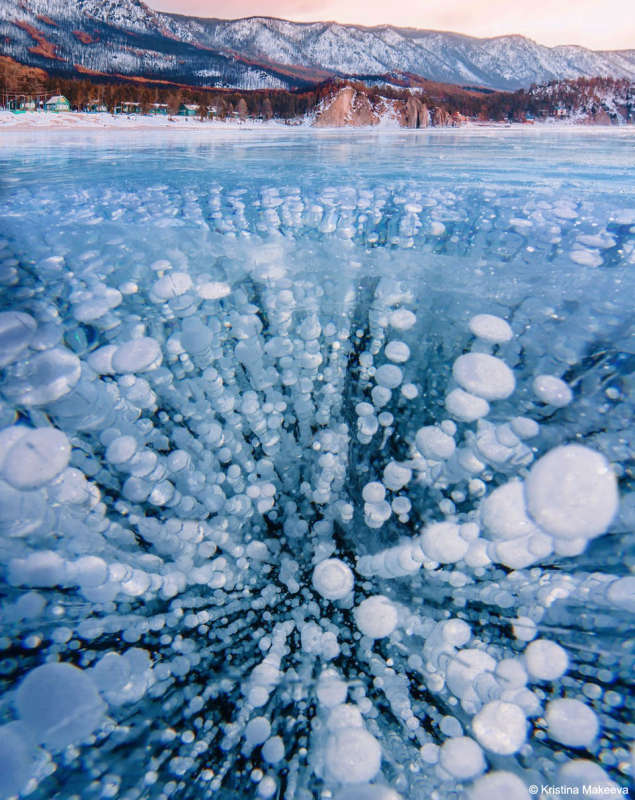Credit & Copyright: Kristina Makeeva
Explanation:
What are these bubbles frozen into Lake Baikal?
Methane.
Lake Baikal, a
UNESCO
World Heritage Site in
Russia,
is the world's largest (by volume), oldest, and deepest lake,
containing over 20% of the world's fresh water.
The lake is also a vast storehouse of methane, a
greenhouse gas that, if released, could potentially increase the amount of infrared
light absorbed by
Earth's atmosphere,
and so increase the average temperature of the entire planet.
Fortunately, the amount of methane currently
bubbling
out
is not climatologically important.
It is not clear
what would happen, though, were temperatures to significantly increase in
the
region, or if the water level in
Lake Baikal were to drop.
Pictured,
bubbles of rising
methane froze during winter into the exceptionally
clear ice covering
the lake.
1999 2000 2001 2002 2003 2004 2005 2006 2007 2008 2009 2010 2011 2012 2013 2014 2015 2016 2017 2018 2019 2020 2021 2022 2023 2024 2025 2026 |
Yanvar' Fevral' Mart Aprel' Mai Iyun' Iyul' Avgust Sentyabr' Oktyabr' Noyabr' Dekabr' |
NASA Web Site Statements, Warnings, and Disclaimers
NASA Official: Jay Norris. Specific rights apply.
A service of: LHEA at NASA / GSFC
& Michigan Tech. U.
|
Publikacii s klyuchevymi slovami:
Earth - Zemlya
Publikacii so slovami: Earth - Zemlya | |
Sm. takzhe:
Vse publikacii na tu zhe temu >> | |
